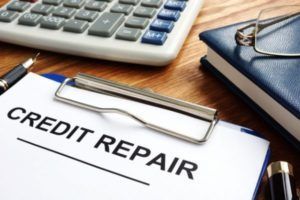How Can I Repair My Credit After Bankruptcy?
 Petitioners who file for Chapter 7 bankruptcy
receive a clean financial slate through the bankruptcy discharge that erases liability for eligible debts. Many delay filing for bankruptcy even when doing so could greatly benefit them because they are afraid to damage their credit score. Potential filers delaying for this reason would do well to consider the current state of their credit score. Most people considering filing for bankruptcy are already past due on their accounts. In many cases, the petitioner’s credit score was in a sad state before they ever filed due to maxed out credit, past due account, poor payment history, etc. If you are worried that filing for bankruptcy means you will never have decent credit again, you can stop worrying.
Petitioners who file for Chapter 7 bankruptcy
receive a clean financial slate through the bankruptcy discharge that erases liability for eligible debts. Many delay filing for bankruptcy even when doing so could greatly benefit them because they are afraid to damage their credit score. Potential filers delaying for this reason would do well to consider the current state of their credit score. Most people considering filing for bankruptcy are already past due on their accounts. In many cases, the petitioner’s credit score was in a sad state before they ever filed due to maxed out credit, past due account, poor payment history, etc. If you are worried that filing for bankruptcy means you will never have decent credit again, you can stop worrying.
Filing for bankruptcy does not mean that your credit will forever be damaged. If you were eligible to file for bankruptcy, the chances are good that your credit score was already on the low end of the scale. Whether or not filing for bankruptcy will result in a lower credit score depends on where your credit score was when you filed. In some cases, when the credit score was already low due to the factors mentioned above, a bankruptcy filing can result in a credit score increase.
Regardless of what your credit score was when you filed or what it was immediately after filing, you can begin to restore your credit right away. The bankruptcy will remain on your credit report for ten years, but the impact of your bankruptcy fades with time. Bankruptcy filers can help decrease the harmful effects of their bankruptcy by offsetting the information with positive reports of on-time payments and careful use of secured credit.
Restoring Your Credit After Bankruptcy:
- A Light Debt Burden: Lenders want to see that you have enough income to pay your current obligations with a little to spare. The discharge of debt creates an immediately lighter debt burden for borrowers, which makes you, in one sense, a more attractive borrower. Remember this as you move forward rebuilding your credit and always aim to keep your debt burden “light” even after you have restored your credit.
- Create a Budget: Use the information you learned in your pre-discharge credit counseling to create a budget.
- Start an Emergency Fund: Keeping as little as $250 in savings can help individuals and families avoid resorting to credit card debt or payday loans that can easily begin a negative financial trend.
- Create a Credit Restoring Strategy: For most, the simplest and most effective strategy is to obtain a secured loan or secured credit card. Both are “secured” by funds belonging to the “borrower” that are held as collateral. While the lender takes no risk, you get the benefit of a “credit” account that reports to the credit reporting agencies. Use the credit sparingly, but consistently. Pay balances off each month or carry extremely small portions of the balance over month to month to ensure that the lender will report a low balance and on-time payments. These positive reports will offset any adverse reports on your credit report and assist you as you rebuild your credit. Always pay on time. Never carry a balance higher than approximately 30% of the available limit (10% or less is even better).
For assistance filing for bankruptcy or more information about rebuilding your credit after bankruptcy, please get in touch with the experienced Tennessee and Georgia bankruptcy attorneys at Kenneth C. Rannick P.C. We help good people through bad times every day, and we can help you, too.
The post How Can I Repair My Credit After Bankruptcy? appeared first on Kenneth C. Rannick, P.C..










